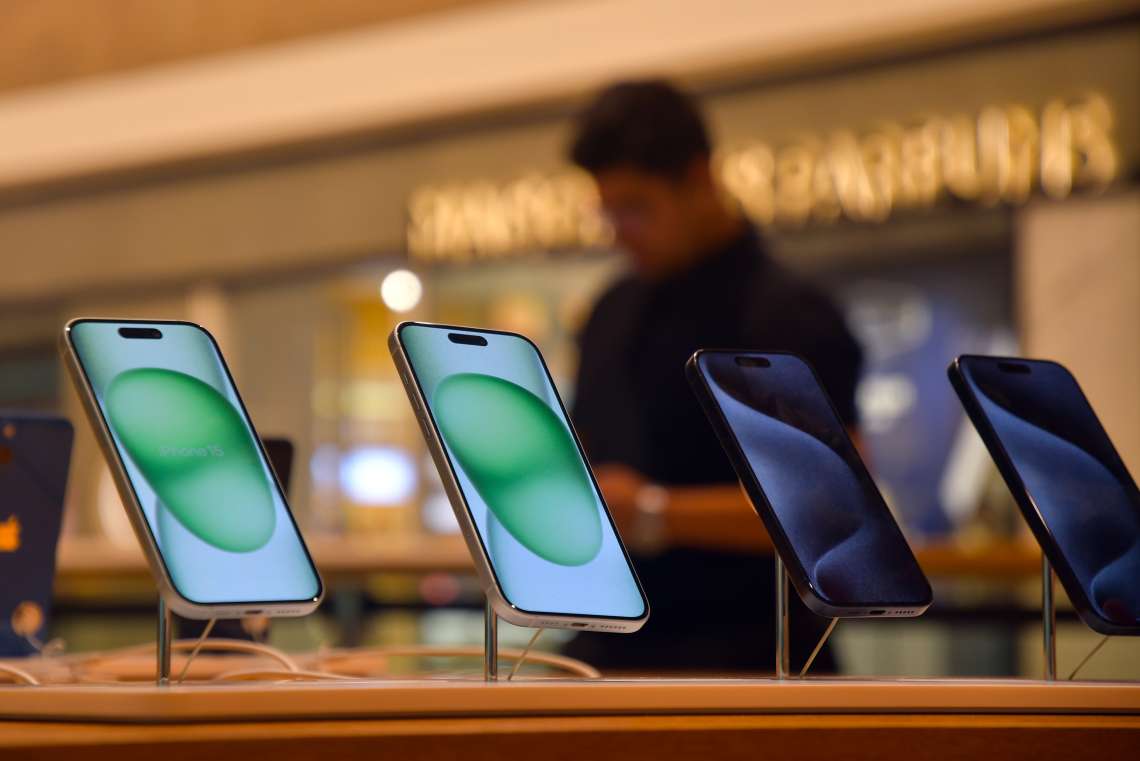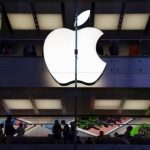Apple services revenue also set an all-time record of $23.1 billion, up 11 per cent year-over-year….reports Asian Lite News
Apple has registered $69.7 billion revenue for iPhones in the December quarter of 2023, a 6 per cent growth year-over-year.
The company set all-time records in several countries and regions, including Latin America, Western Europe, the Middle East, and Korea, as well as December quarter records in India and Indonesia.
“Our iPhone active install base grew to a new all-time high, and we had an all-time record number of iPhone upgraders during the quarter,” said Luca Maestri, Apple CFO.
According to a survey from Kantar, iPhones were four out of the top five models in the U.S. and Japan, four out of the top six models in urban China and the UK, and all top five models in Australia.
Apple services revenue also set an all-time record of $23.1 billion, up 11 per cent year-over-year.
“We’re very pleased with our services performance in both developed and emerging markets, with all-time revenue records in the Americas, Europe, and rest of Asia-Pacific,” said Maestri.
Mac generated revenue of $7.8 billion and returned to growth, despite one less week of sales this year.
“Customer response to our latest iMac and MacBook Pro models powered by the M3 chips has been great and our Mac install base reached an all-time high, with almost half of Mac buyers during the quarter being new to the product,” said the company.
iPad was $7 billion in revenue, down 25 per cent year over year.
“iPad faced a difficult compare, because during the December quarter last year, we launched the new iPad Pro and iPad 10th generation, and we had an extra week of sales,” said Maestri.
Wearables, Home and Accessories revenue was $12 billion, down 11 per cent year over year due to a challenging launch compare and the extra week a year ago.
With the upcoming launch of Apple Vision Pro, the company is seeing strong excitement in enterprise.
“Leading organisations across many industries, such as Walmart, Nike, Vanguard, Striker, Bloomberg and SAP have started leveraging and investing in Apple Vision Pro as the new platform to bring innovative spatial computing experiences to their customers and employees,” said the company.
‘Apple Blocks Rivals’
Apple has made it very difficult for others to build rival app stores in the European Union (EU), Meta founder and CEO Mark Zuckerberg has said.
Apple maintains that side-loading represents a security threat. However, the EU’s upcoming Digital Markets Act (DMA) has forced the tech giant to make App store changes in the region, including new fees.
“I don’t think that the Apple thing is going to have any difference for us. Because I think that the way they have implemented it, I would be very surprised if any developer chose to go into the alternative app stores that they have,” Zuckerberg told analysts during the company’s fourth quarter earnings call late on Thursday.
“They’ve made it so onerous, and I think so at odds with the intent of what the EU regulation was, that I think it”s just going to be very difficult for anyone, including ourselves, to really seriously entertain what they’re doing there,” he added.
After Epic Games CEO Tim Sweeney and Spotify CEO Daniel Ek, Microsoft has also criticised Apple App Store changes in the EU, calling those “a step in the wrong direction.”
X owner Elon Musk on Saturday joined the debate around Apple’s App Store changes in the European Union (EU) ahead of the Digital Markets Act (DMA) in March, saying these changes are “very concerning”.
The world’s richest man reacted to Spotify CEO Daniel Ek who posted on X that Apple’s DMA announcement is, “at best vague and misleading”.
To which, Musk said these changes are very concerning. He, however, did not divulge more on the hot issue.
Apple has announced changes to iOS, Safari, and the App Store in the European Union in response to the DMA coming into force in March.
The key news is that third-party app stores will be allowed on iOS for the first time. The changes will arrive with iOS 17.4 in March.
The new App Store changes, announced ahead of the EU Digital Markets Act (DMA) in March, will require developers using third-party app stores to pay 0.50 euro for each annual app install after 1 million downloads.
Apple will also still take a 17 per cent commission from the developers who choose to use third-party payment processors.
ALSO READ: Lulu Signs MoU With UAE Military Veterans














